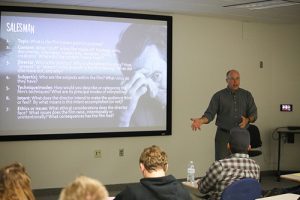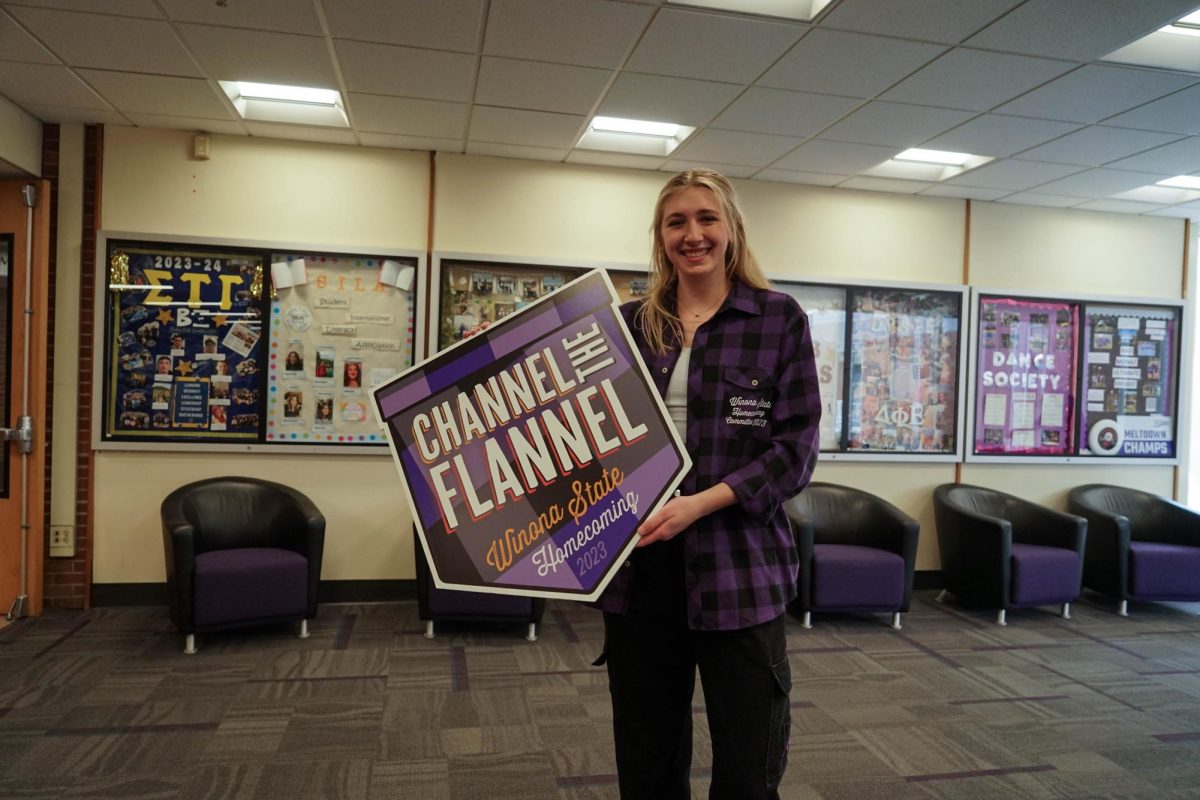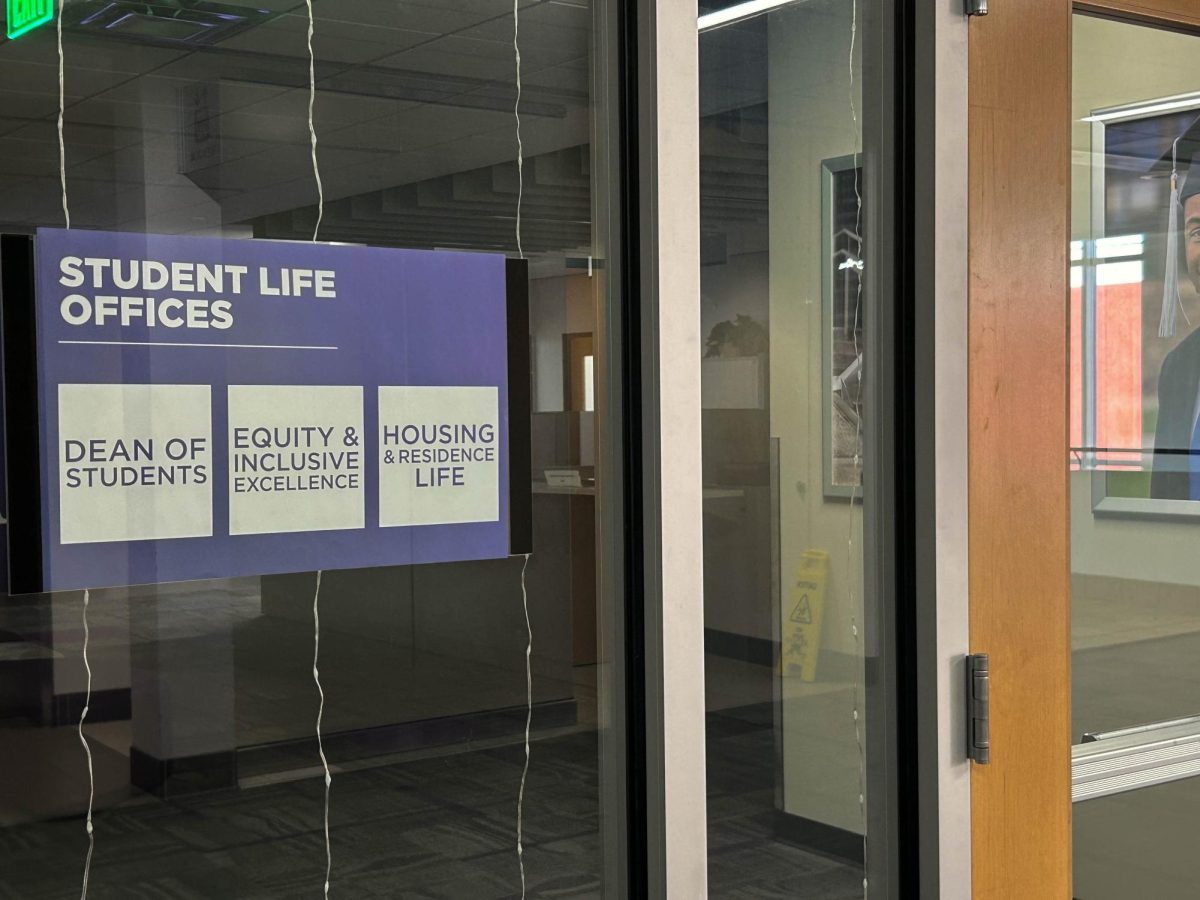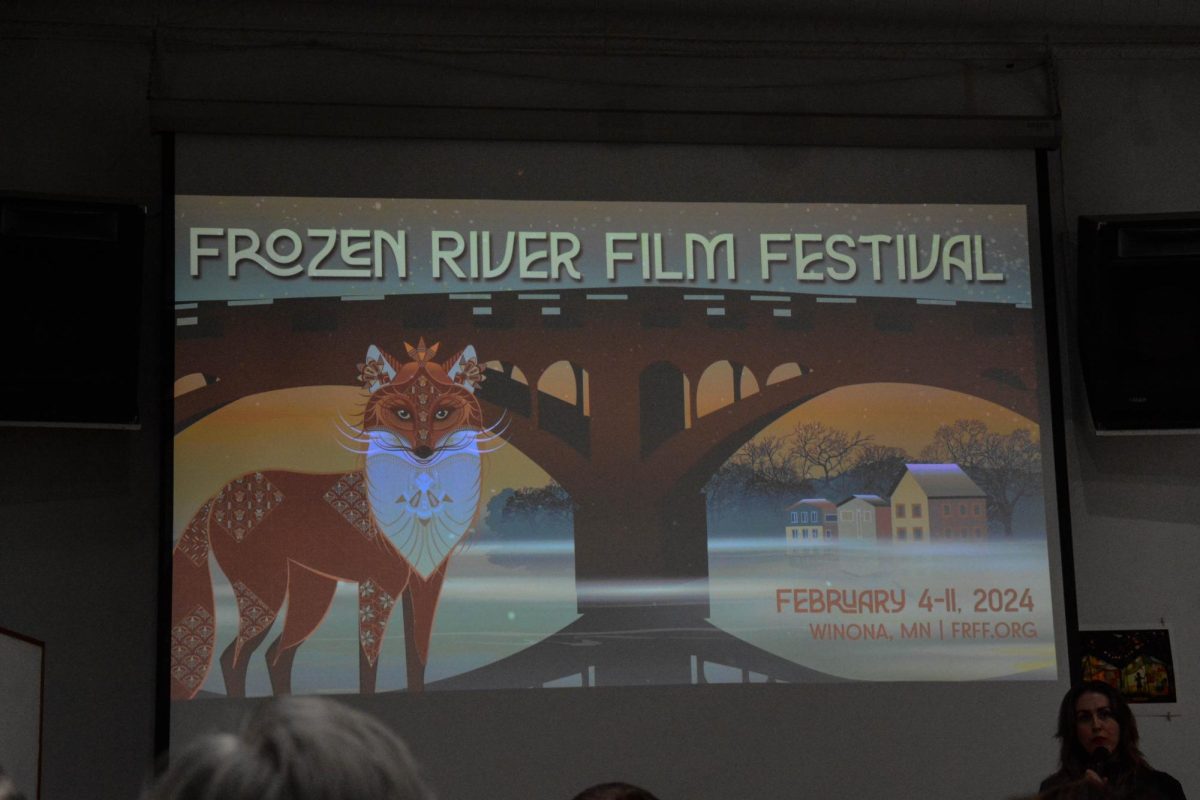
Olivia Volkman-Johnson / Winonan
Winona State University’s studies of the big screen just got a little bigger.
In an effort to add to the growing film studies minor, professor Andrea Wood attended the National Endowment for the Humanities (NEH) Summer Institute at Florida International University this past summer.
Wood said she attended in hopes of learning more about Japanese culture to create a special topics course for the new film studies major that was approved in summer 2016.
After the success of the film studies minor, which was implemented in 2011, the major was created by interim chair of the mass communications department Paul Johnson and Wood in order to accommodate the increase in student interest.
“For a couple of decades at Winona State, there was only a single course in film studies that was offered,” Johnson said. “We certainly always felt there was a desire on student’s behalf to study more.”
According to Johnson, a survey of more than 100 film studies minors found that a film studies major would be well received at Winona State.
The major will offer the full range of courses in fall 2017, including courses on film genres such as horror, war, melodrama, film noir, sci-fi, western and more.
Johnson explained that much of the popularity of the study of film—what he calls a “pan-art”—comes from its ability to adapt to a variety of studies.
“We worked very hard in the design of the program to make sure that it was something that would be not just engaging to students who are solely committed to film but to students who are from other disciplines,” Johnson said.
As part of designing the program, Wood delved into the history of film in Japan the NEH Summer Institute in Florida this past summer.
According to Wood, the focus of this year’s institute was “Tokyo: High City, Low City” and incorporated professors from a range of disciplines including literature, film and sociology.
“It was wonderful for me to connect with those people and get their perspectives on the culture and history of Tokyo from a lot of disciplinary angles,” Wood said.
Wood plans to use the information she learned at the institute to develop a special topics course titled “Imagining Tokyo in Global Cinema” that explores why and how filmmakers across the world represent Tokyo in cinematic works.
Wood said she also hopes to use her experience living and working in Tokyo to develop a summer travel study course where students can visit filming locations and learn more about how Japanese culture is portrayed in film.
In addition to these courses, both Johnson and Wood said they have big goals for future film studies coursework.
One of these goals involves partnerships with the mass communication department, Winona State’s Retiree Center and the Frozen River Film Festival in order develop a course that gives
students hands-on experience with film curation and production.
“We really want the course to be one that would assist in helping students professionalize and to give them some kind of working world experience,” Wood said.
For now, Johnson and Wood hope to inspire Winona State students who may be interested in film studies to take an introductory course or ask questions to learn more about the program.
“Images of who we want to be or wish to be come to us through all kinds of channels—film is still an immensely powerful one,” Johnson said. “So we want to tap into that, we want to help people understand the history of film as it’s developed in this country and others.”
-By Olivia Volkman-Johnson




























































